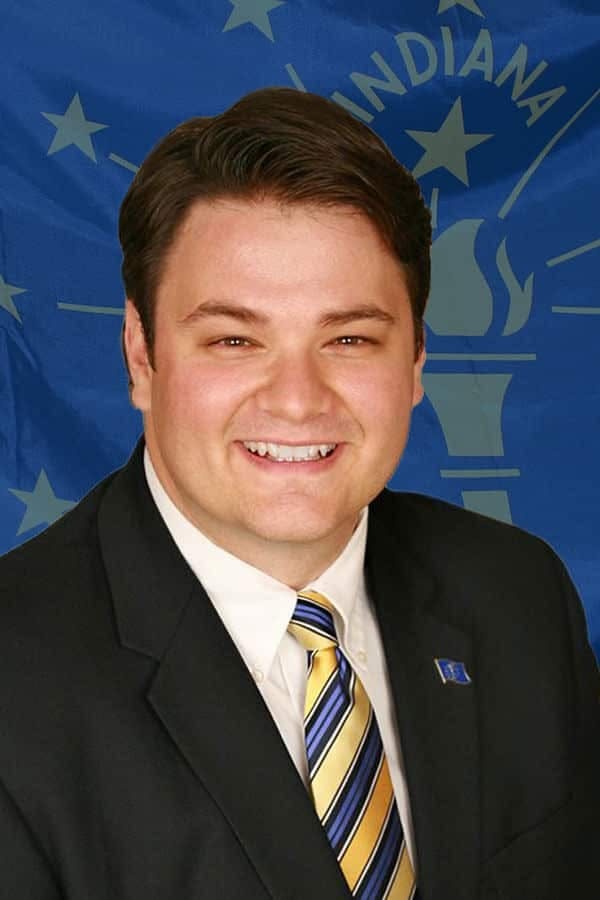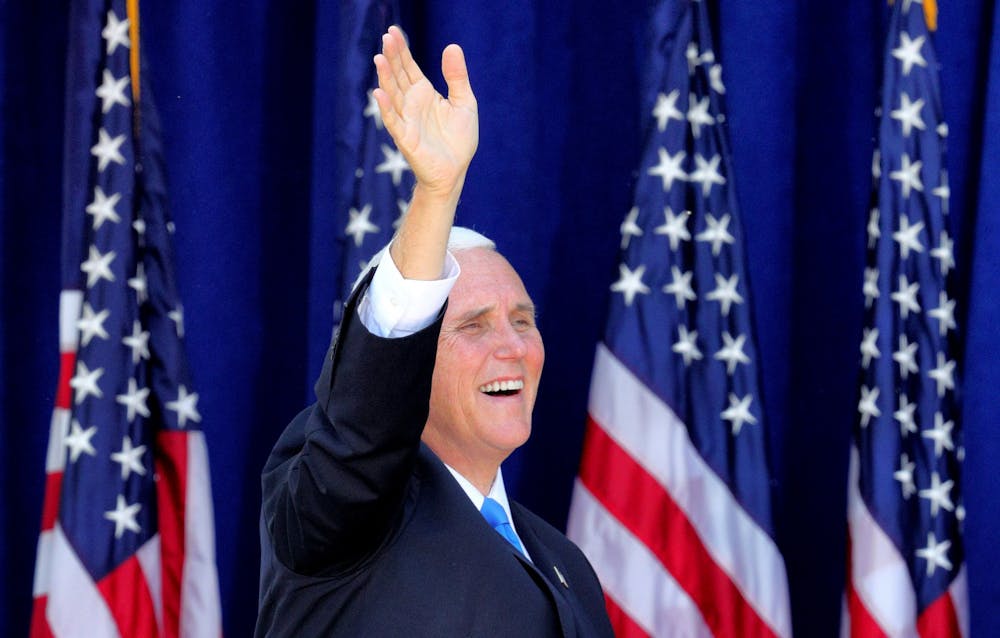From the Indiana Statehouse to the White House, Vice President Mike Pence has remained consistent in his blatant homophobia. Demonstrated by a career of anti-LGBTQ+ rhetoric and legislation disguised as a dedication to religious liberty, Pence’s career propagated anti-LGBTQ+ notions into Americans, with grave consequences for future LGBTQ+ equality.
Pence was strictly opposed to LGBTQ+ equality in his congressional campaign in 2000. The campaign website outlines a section dedicated to “Strengthening the American Family,” which read, “Congress should oppose any effort to put gay and lesbian relationships on an equal legal status with heterosexual marriage.”
Additionally, in the same campaign, Pence openly supported conversion therapy, a process of using various methods to change a person’s sexual orientation or gender identity, as a solution to combat the HIV/AIDS crisis.
He continued to condemn the LGBTQ+ community by co-sponsoring an Indiana Constitutional amendment to define marriage between a man and a woman in 2004. Pence voted against the Employment Non-Discrimination Act in 2007 and the repeal of “Don’t Ask, Don’t Tell” in 2010. But in 2015, Pence focused his homophobia on Indiana with the passage of the Religious Freedom Restoration Act.

Praised by religious conservatives, Pence signed RFRA into law Mar. 26, 2015. The bill established that the government cannot infringe on a person's religious liberty without a compelling reasoning to do so.
An outcry from LGBTQ+ allies and organizations across the country took place directly after the passage in fear of discrimination against LGBTQ+ people. One week later, an amendment was added to prohibit businesses from discriminating based on sexual orientation.
The rights of LGBTQ+ individuals in Indiana were in the hands of how one interpreted rhetoric regarding homosexuality presented in religious texts written hundreds of years prior.
In order to highlight the calamities of the bill, I spoke with Democratic State Sen. J.D. Ford, the first openly gay legislator in Indiana history. Ford discussed the consequences of anti-LGBTQ+ rhetoric and legislation on LGBTQ+ individuals, as well as the importance of equitable representation in government.
“We do have this negative perception out there, right now, about our state not being welcoming,” Ford said. “And that really, in my opinion, stems from the RFRA fight. You had the governor of Connecticut banning state employees from traveling to Indiana for fear of their employees being harassed simply because of who they are. You had concerts and conventions like GenCon basically say, ‘We’re not coming to your state.’”
Pence created a hell for LGBTQ+ individuals terrible enough to be recognized by state officials across the country.
“We like to say we have ‘Hoosier Hospitality,’ but where is that when we are passing these policies?” Ford said.
LGBTQ+ persons are humans with the right to express their true selves, but Pence believes otherwise. It is imperative to understand the effects of Pence’s words and legislation on Indiana’s LGBTQ+ community. Religious liberty can no longer be used as an excuse for murder.
“When you have people like Mike Pence saying that you are less than or that it is okay to discriminate against you, you internalize that message,” Ford said. “It is no surprise, in my opinion, that we have one of the highest LGBTQ+ suicide rates in the nation. I think it is directly related to people out there saying these homophobic things.”
Since the 2016 election, LGBTQ+ individuals have experienced an increase in stress levels, depression and anxiety, which experts relate to a parallel rise in hostile attitudes and incidents of hate crimes on the basis of race, ethnicity and sexual orientation. A 2018 study’s results revealed “higher levels of stress pertaining to sexual orientation rumination, daily experiences of harassment/discrimination and more symptoms of depression and anxiety,” following the election.
In the face of President Donald Trump and Pence’s grim reality in the White House, one can find hope in inclusive, representative legislators like Ford. Diverse voices create diverse bills with the additional understanding of the adversities minorities, like themselves, face.
“I can be at the statehouse,” he said. “I can be at the table. I can be at the microphone. I can have a platform that can reach a lot of people to point out some of these anti-LGBTQ+ policies.”
His victory, along with the increasing number of victories from a diverse set of people in our nation’s Congress, ensures confidence in young minority individuals that they may one day have a voice in politics.
Human rights are up for debate in this election. The rights of every LGBTQ+ individual — who are your family members, friends and colleagues — are contingent upon your vote.
“With the stroke of a pen, our rights can be easily taken away,” Ford said.
A vote for Trump and Pence is a vote against the LGBTQ+ community and one for a future rooted in homophobia.
Russ Hensley (he/him) is a sophomore studying mathematics, political science and international law. He is a curator for TEDxIndianaUniversity, a member of IU Student Government and a member of the Hutton Honors College.






